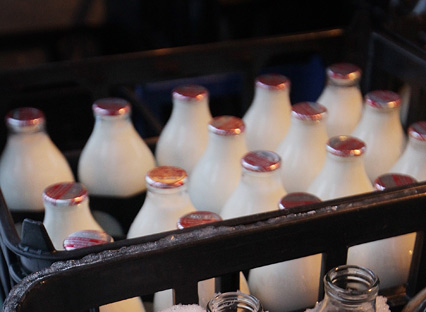Four surprising items that are banned in the US - and one that now isn't
The land where a haggis is more dangerous than a handgun

A free daily email with the biggest news stories of the day – and the best features from TheWeek.com
You are now subscribed
Your newsletter sign-up was successful
Haggis, French brie and Haitian drums - what do they all have in common? The answer is they are all banned from the US.
Here are five surprising banned items from a country where you can buy a semi-automatic rifle but not a Kinder Egg:
Haggis
The Week
Escape your echo chamber. Get the facts behind the news, plus analysis from multiple perspectives.

Sign up for The Week's Free Newsletters
From our morning news briefing to a weekly Good News Newsletter, get the best of The Week delivered directly to your inbox.
From our morning news briefing to a weekly Good News Newsletter, get the best of The Week delivered directly to your inbox.
In 1971, the Department of Agriculture decreed that animal lungs could not be used in any foodstuff - bad news for the ten million Scottish-Americans who still cannot celebrate Burns Night with a haggis, traditionally made from the lungs, liver and stomach of a sheep.
Some manufacturers have got around the ban by developing a special lung-free haggis for the American markets. The US imitations “aren't bad”, former Washington D.C. correspondent for The Scotsman, Alex Massie, told the BBC, but “without the sheep's lung it's not authentic.”
Unpasteurised milk
Since 1987, the interstate sale of raw milk or any foodstuff containing unpasteurised milk has been banned in the US, on the grounds that the consumption of raw milk carries an increased risk foodborne illnesses like e-coli and salmonella.
A free daily email with the biggest news stories of the day – and the best features from TheWeek.com
Within individual states, the sale of unpasteurised milk is totally banned in 18 states, while 17 others only allow it to be sold directly from the farm where the milk is produced, according to Real Raw Milk Facts.
Traditional Haitian drums
US travellers hoping to bring home a memento from their trip to Haiti should avoid purchasing a tanbou, the island’s national instrument. The drums are banned from entering the US due to fears that the goat hides used for their skins may contain spores of anthrax.
The Center for Disease Control acknowledges that the risk of being exposed to anthrax via Haitian goat hide is “considered to be very low”. In fact, there has only ever been one documented case on US soil, in 1974.
Casu marzu
This notorious Sardinian delicacy is made by allowing flies to breed inside pecorino. A fully fermented casu marzu - which literally translates as “rotten cheese” - will contain thousands of tiny maggots.
It may not be for the faint-hearted, but any Americans brave enough to give it a try will need to leave home to do so - casu marzu is totally banned from the US on hygiene grounds, Insider reports.
And while few are likely to mourn that particular interdiction, less divisive cheeses also banned in the US include traditionally-made French brie (due to its raw milk) and reblochon and camembert (which fall foul of US rules stipulating that cheese must be aged for at least 60 days).
And one that is no longer banned
Kinder Eggs, chocolate shells containing a miniature toy, are enjoyed by children the world over - except in the US, until recently. Edible products there are not allowed to contain concealed toys, due to fears that children may mistake them for food.
That fear is not entirely unfounded - in 2016, a three-year-old girl in France choked to death after swallowing a toy from a Kinder Egg, The Independent reports.
However, a modified version of the treat which separates the chocolate and toy components into distinct halves is to go on sale on Black Monday 2017, Today reports.
This is good news for would-be smugglers, as US customs took the ban very seriously - as two Seattle men returning from a trip to Canada found out in 2012, when they were detained by border guards for more than two hours after Kinder Eggs were discovered in their car, CBC reports.
-
 How the FCC’s ‘equal time’ rule works
How the FCC’s ‘equal time’ rule worksIn the Spotlight The law is at the heart of the Colbert-CBS conflict
-
 What is the endgame in the DHS shutdown?
What is the endgame in the DHS shutdown?Today’s Big Question Democrats want to rein in ICE’s immigration crackdown
-
 ‘Poor time management isn’t just an inconvenience’
‘Poor time management isn’t just an inconvenience’Instant Opinion Opinion, comment and editorials of the day